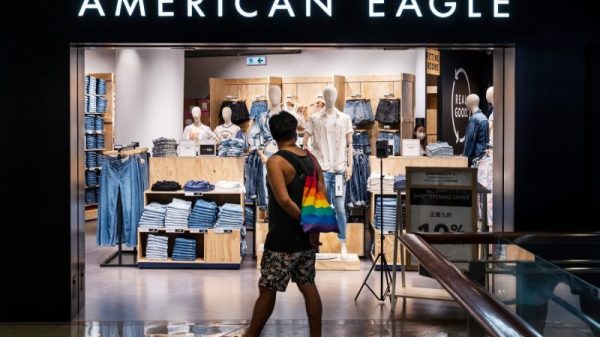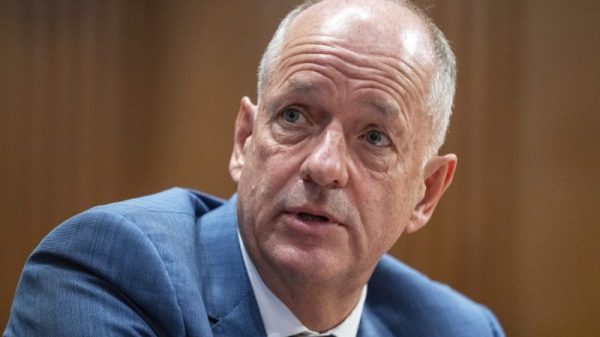For South Africans, normality is a sliding scale.
Record electricity blackouts and sustained water outages have crushed businesses, and caused havoc in hospitals and schools nationwide. It’s common to see car-sized potholes in the suburbs of Johannesburg as workmen weld burst pipes. Traffic light outages are a daily occurrence.
The privations are often treated with the nation’s trademark humor.
But now, even extraordinary, violent events have also become almost commonplace. In October, a heavily armed gang blocked off one of the busiest highways near Johannesburg as it blew up a cash-in-transit vehicle – a security van carrying cash.
Video of the heist was captured on cell phones in real-time. Bystanders can be heard giving running commentary from an overpass.
Cash-in-transit, or CIT, heists are one of the most dramatic illustrations of a crime wave that has shocked even the most hardened South Africans. Murder is at a 20-year high; someone is killed in the country roughly every 20 minutes, according to the most recent quarterly police crime statistics.
Other serious crimes are also on the rise. In 2022-23, recorded cases of kidnapping increased by 41.7%, attempted murders rose by 13.7%, while reported carjacking incidents increased by 8.5%, compared to the previous year, according to annual statistics. Meanwhile, CIT heists remained at the same level as the year before, with 238 incidents recorded.
South Africa is approaching a critical election and the ruling African National Congress (ANC) could lose its majority for the first time since Nelson Mandela led it to power 30 years ago — the crime crisis is front and center. And the social impact, of course, goes far beyond the shock value of viral videos.
Forgotten victims
TT Ngwenya, a father-of-four and former cash-in-transit guard, shuffled up the stairs to his apartment in downtown Johannesburg earlier this month, one hand gripping a crutch, the other holding the rail. The elevators were broken.
He recalled the incident in May 2021 in which the van he was guarding was targeted by a gang.
The CIT gang hit Ngwenya and his co-worker, who was driving, quickly and hard, crashing into their armored vehicle with a heavy sedan to disable it.
“I cannot stand for a long time. I can only stand for three minutes. I am always in pain,” said Ngwenya, who says he is currently on temporary disability allowance from his company’s insurers – but hopes to get a permanent payout from them.
He knows that he is one of the luckier ones. When CIT guards get killed — and they are frequently killed — the local news rarely mentions their names.
“It’s so bad because it seems that every day you lose a member. It’s so bad because every day you wonder whether you will come back,” said Petrus Mthembu, the president of the Motor Transport Workers Union, who works in the CIT industry and has been hit by gangs himself.
“You don’t know whether you will survive, which tells you there is no stability within the country,” he added.
Fast cash
Like anywhere in the world, there are push factors for crime, including inequality and a lack of jobs. South Africa has the highest unemployment in the world, at about 32% in the last quarter of 2023. Youth unemployment is more than 40%.
He admits that he was addicted to the fast cash, as he calls it, saying for one hit each gang member netted around R350,000 (about $18,500.)
The gang had spotters and shooters, he said, some with specialized military training. They used a team of 10 to 15 people and, he claims, they frequently got guns and intelligence from the police.
“There are many corrupt cops, too many,” he said.
“During this period, 46 CIT armed robberies took place, which is 11 counts lower than the previous crime reporting period,” the speech said. The police recovered firearms including rifles and AK-47s, it added.
Feeling the toll
Security and intelligence experts say that the CIT epidemic, and the crime crisis in general, come down to a lack of targeted policing and intelligence. They say there are good cops in the system, but that they are demotivated and underpaid. The police have also been struck by multiple corruption scandals over the years.
The South African police minister, Bheki Cele, recently highlighted what he called the successes of the Crime Intelligence division in tackling organized crime and rooting out corruption within the ranks of the force.
“Organized crime at this point is completely out of hand, you have corruption across the board from the lowest to the highest levels,” said Joe van der Walt, the founder and chief executive of Focus Group, a private intelligence company with corporate clients. “You need a strategy that is being followed in order to tackle crime.”
That strategy, for many companies and wealthier South Africans, is to turn to private intelligence, investigations and security. There are more than half a million active private security guards in the country, according to the Private Security Industry Regulatory Authority.
It’s a fast-growing industry – and its members are equipped with manpower and gear far outgunning the police. But even they are feeling the toll.
“These companies are not investing in new products, research, and development to become better. But you are spending a hell of a lot of money to maintain your operations, so you don’t lose the war against crime,” said Gareth Newham, the head of justice and violence prevention at the Institute for Security Studies. “What’s driving the increase in murders is more related to organized crime or organized forms of crime.”
For Ngwenya, the crime crisis is deeply personal and life-changing. He knew the risks of guarding the CIT truck, he said, but he needed the money.
On a recent Tuesday afternoon, as his children started to file in from school, he lay nearly prone on his sofa. He struggles to afford their education fees, he said, and doesn’t have the money to buy airtime on his phone.
“When I went to work there, I knew I could be killed,” he said. “But you must not think about that, otherwise you will never work for your children.”







































